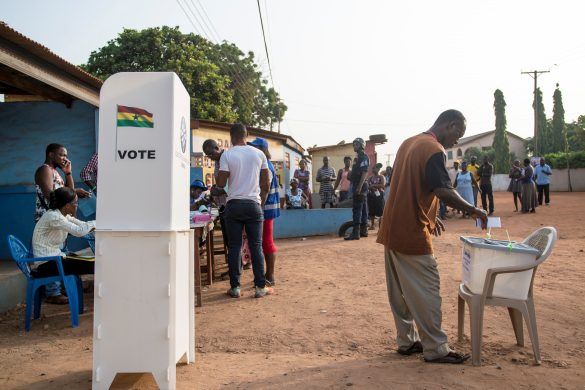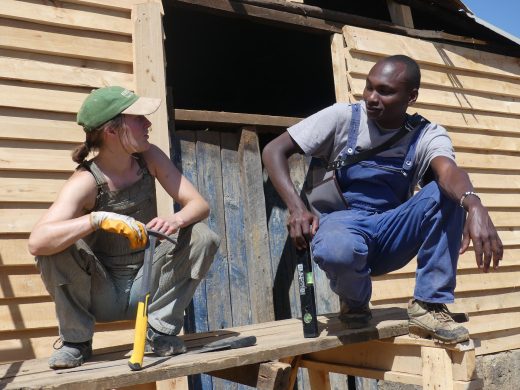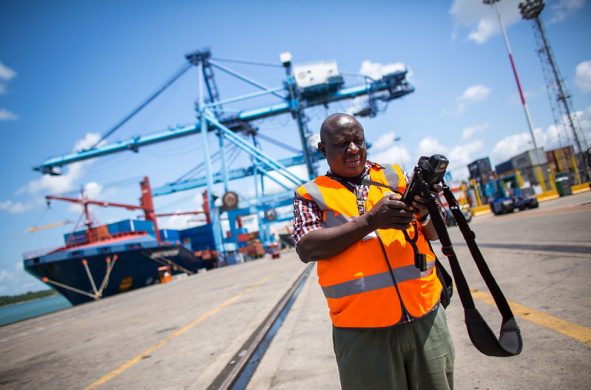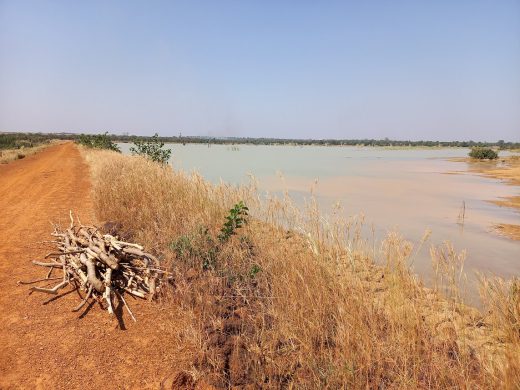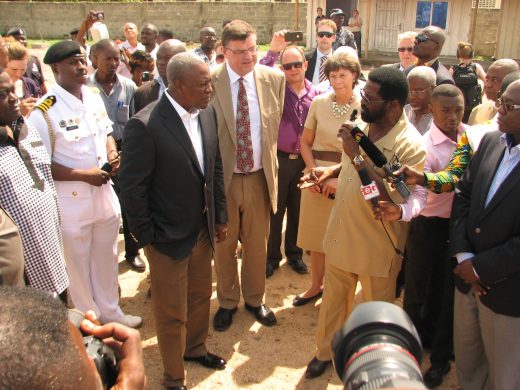FN-program i Ghana lærer flygtninge fra Liberia nye færdigheder, der skal hjælpe dem med at finde et arbejde når de vender hjem. Mange flygtninge uden uddannelse har tøvet med at vende hjem af frygt for at ende i fattigdom.
BUDUBURAM, Ghana, 15 May 2014 (UNIDO): Over 550 trainees and 60 trainers today gathered here to celebrate graduation from a project entitled, “From Ghana to Liberia: Reintegration of Liberian refugees through multi-skills training for sustainable livelihoods and poverty alleviation”.
The celebration took place in the presence of the ambassadors of Japan and Liberia, and Ghana’s Minister of Employment and Social Welfare, as well as other distinguished guests.
Mange finde det svært at rejse hjem
During the 1990s and the early 2000s, many Liberians fled to refugee camps in Ghana in an attempt to escape their war-torn country. Stability has now been restored in Liberia, yet many refugees find it difficult to return home.
As Ken Dzirasah, Chairman of the Ghana Refugee Board, explained, “One major factor impeding their repatriation is that most refugees fear poverty in their home country because they either lack the skills required to find formal employment or the knowledge and funds needed to start their own businesses”.
With financial support from the Government of Japan, the United Nations Industrial Development Organization (UNIDO) developed a project to provide 450 Liberians and 100 Ghanaians living in or near Buduburam, a Ghanaian refugee camp, with micro-industrial skills training in various subjects such as baking, beauty care, dressmaking, information technology, masonry and welding.
At the graduation ceremony marking the conclusion of the skills training, Frank Van Rompaey, UNIDO Representative in Ghana and Togo stated, “It is our pleasure to dispatch the graduates who will boost local micro-industries both in Ghana and in Liberia”.
Naoto Nikai, Japan’s Ambassador to Ghana, declared, “I am glad that the Japanese government’s continuous support is benefitting Liberian refugees, as well as host communities around the camp, who have gained the skills and knowledge to build their own lives and are about to open new pages of their lives.”
Vil være bager
Esther Massalay, a 29-year old Liberian who has learned baking, was both grateful and proud. She said, “The people of Japan and UNIDO gave me the chance to go through the training. With the skills I have acquired, I can start my career in baking. I stand far from where I was before the training”.
Reflecting on what has been achieved so far, the project’s technical coordinator, Takaaki Miura, said, “While we are very pleased that the trainees have participated in the training with great enthusiasm, we are especially proud that we were able to attract a great number of young women to our courses. With 82 per cent of our trainees being female, we can help counteract the significant gender inequity prevailing among refugees with regard to educational standards”.
FN hjælper med transport, værktøj og midler til at komme i gang
Following graduation, the International Organization for Migration will assist the refugees in returning to and settling in Liberia. The graduates of the UNIDO project will receive support for transportation, toolkits and industry start-up support.
This, in combination with the marketable technical and entrepreneurial skills that the trainees acquired thanks to the UNIDO training courses, will ultimately contribute to the development of local markets, increases in productivity, economic diversification, economic growth, poverty reduction, and local peace and order in Liberia.
UNIDO will provide support and mentoring for those refugees that return to Liberia with the establishment of their own micro-industries and job placements.







